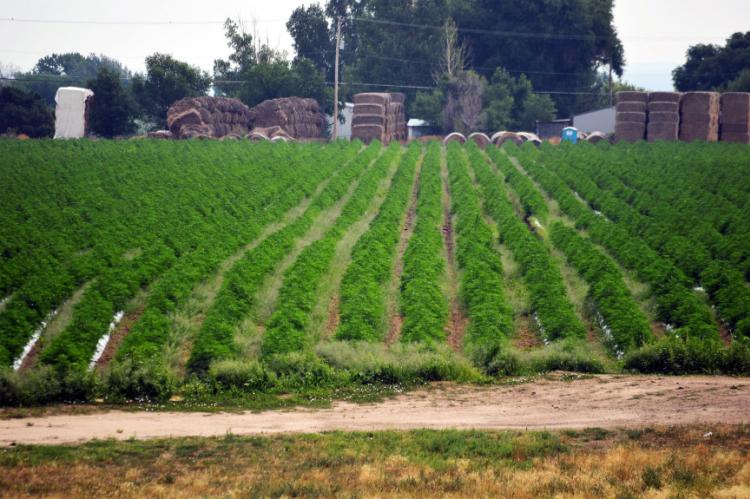Hemp cultivation fraught with legal grey areas for growers, processors
The 2018 Farm Bill converted hemp from a highly controlled substance to a highly regulated commodity and, in the process, created a program fraught with legal peril to the uninitiated.
David Bush, a partner with the Denver-based Hoban Law Group, which specializes in hemp and marijuana law, told Tuesday’s Harnessing Hemp symposium that growers shouldn’t try to navigate the legal minefield around hemp without good legal advice.
“We’re all new to this, we’re all still learning,” Bush said. “There’s a lot of confusion, a lot of ambiguity, a lot of asking, ‘Just what is legal?’”
Bush told the group the new farm bill didn’t actually legalize hemp cultivation. It has always been legal, he said, but the regulation of it was a criminal regulation.
“(Before 2018) you could grow hemp, if you had a good reason, but you had to get a permit from the Drug Enforcement Agency, and they didn’t give out very many of those,” he said.
With the 2018 Farm Bill the federal government switched from a criminal model of regulation to a commercial model, the first time since 1937 that had been done. Bush said the new domestic hemp program is an example of “cooperative federalism,” similar to Medicaid and Obamacare. States have a choice, he said; they can write their own regulatory plan, as long as it meets federal standards; they can do nothing and leave regulation up to the federal government; or it can ban hemp cultivation outright.
Colorado is in the process of submitting its own plan to the U.S. Department of Agriculture, Bush said. Federal regulations are in the form of “interim final rules,” which means there still are comments being received about the proposed regs. Bush said the comment period has been extended to Dec. 31, and he has several problems with interim rules, which he will address when he submits his own comments.
“What if you get to Nebraska and they don’t like the way hemp is tested in Vermont? Are they going to make you test it all over again? That’s like having to stop at every state line and take a new driver’s test before you can drive in that state.”
The biggest problem with the interim rules, Bush said, is the ambiguity of the regs, such as the requirement of felony background checks.
“What constitutes a felony?” he asked. “Something that might be a felony in Kentucky would only be a misdemeanor in Kansas and a petty crime in Colorado. And who do we check? Every farm hand who works during the summer? All of the partners of the company or just the CEO? What about family members, who may or may not work on the farm?”
There also are questions about the standardized sampling methodology, since hemp crops have to be tested for THC, the psychotropic substance that makes marijuana users high. Commercial hemp can contain no more than 0.3 percent THC; over that limit means an entire crop must be destroyed.
Bush said there are no standardized tests for THC content, and that content can rise or fall between the field and the testing lab, which has to be registered with the DEA. The regulations also say harvest must be completed within 15 days of the sample being taken because, as the plants mature, the THC content increases. That timetable may be nearly impossible in some cases because there is no standard for how long the samples can sit before being tested.
The new federal law also doesn’t allow for “intermediate products.” Those are steps during refinement when the hemp oil is concentrated, giving it a higher THC content, before the THC is refined out and the product is diluted for commercial use.
There also is no reciprocity among states despite the constitutional guarantee of “full faith and credit.”
“You may have your hemp tested in Vermont, but need to ship it to Colorado for processing,” Bush said. “What if you get to Nebraska and they don’t like the way hemp is tested in Vermont? Are they going to make you test it all over again? That’s like having to stop at every state line and take a new driver’s test before you can drive in that state.”
Asked whether a change in federal policy regarding marijuana would make things better, Bush said that would be “a sea change.”
“If they would just reclassify marijuana as a Schedule 3 substance instead of Schedule 1, it would be a sea change,” he said. “This would all go away.”
Bush emphasized the need for growers to have good legal advice when considering whether to grow hemp.
“Your lawyer will try to come up with strategies for you to control your risk,” he said.
Tuesday’s symposium was sponsored by Northeastern Junior College and the Eastern Colorado Small Business Development Center.
- Log in to post comments

